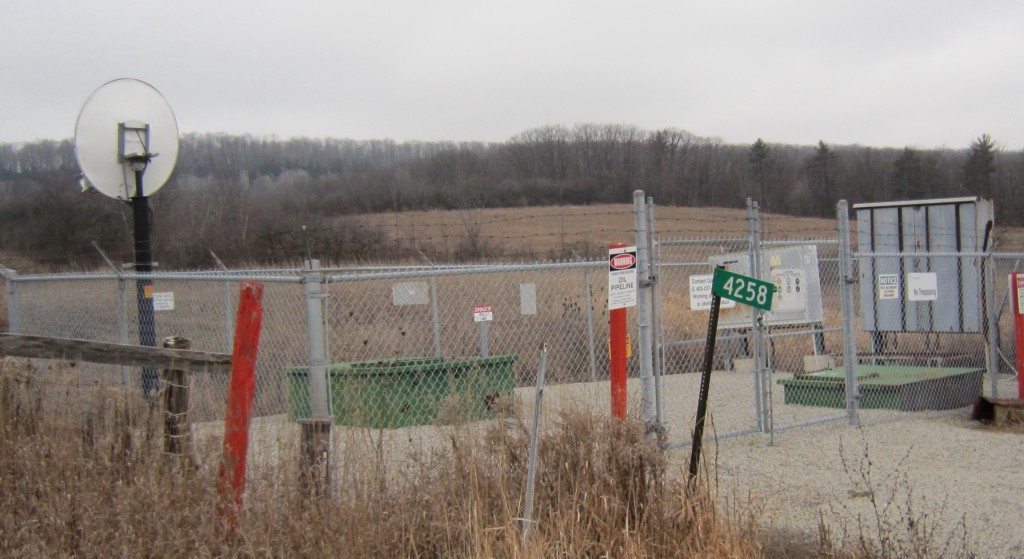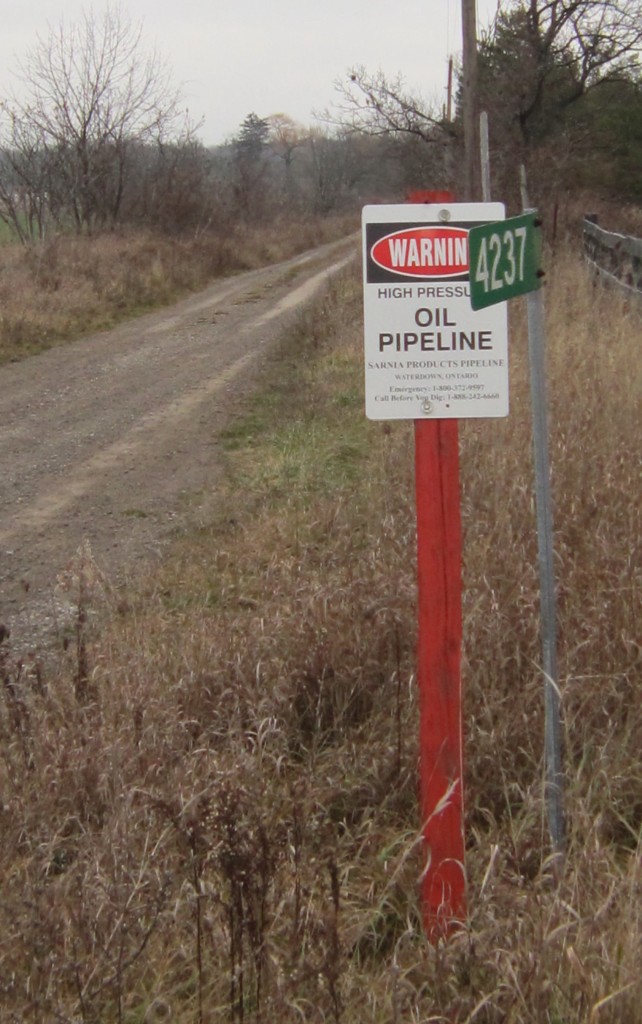By Staff
CATCH (Citizens at City Hall) is a citizens organization in Hamilton that documents Hamilton city council meetings. The organization has a strong environmental bent to it and has watched the Enbridge Line # 9 and the National Energy Board proceedings which are relevant to Burlington because Line #9 runs right through the city just north of Side Road #1. This report is from CATCH – we pass it along because of its relevance.
BURLINGTON, ON. Controversy continues to swirl around both the National Energy Board and Enbridge Inc’s Line 9 proposals that the NEB is expected to rule on in January. Revelations this week include a large Line 9 spill that the company failed to report to the affected municipality and evidence that an association representing Enbridge and other energy corporations virtually dictated federal changes to the NEB that restricted public input into the regulator’s decision-making process. Those changes were among problems cited last month by “Ontario’s voice on public policy” in a remarkably frank discussion of the pluses and minuses – mostly the latter – of the effect of tar sands pipeline proposals on Canada’s largest province.
The Mowat Centre was set up at the University of Toronto five years ago by the Ontario government. Its pipeline review co-authored by founder and director Matthew Mendelsohn points to severe climatic impacts, safety concerns, damage to the manufacturing sector and the minimal economic benefits of oil sands expansion as reasons for the province to demand a different approach by Alberta and the federal government.

One of the pipeline station control points is located on Walkers Line. Thousands drive by it every month.
While noting Ontario’s support for “Alberta’s continued prosperity” and inclination to therefore support pipelines, the Mowat review points to “legitimate concerns regarding environmental safety” that are “real and should be treated as such”. It also contends that “new oil pipeline infrastructure is only needed if expansion in the oil sands is envisioned” which it says is completely undermining efforts to reduce greenhouse gas emissions.
“For nearly a decade, Ontario has confronted a federal government that refuses to recognize the contribution that Ontarians are making to reducing emissions while allowing the emissions from the oil sands to continue increasing unabated. So long as the federal government – and the government of Alberta – support a climate change policy that asks Ontarians – and other Canadians – to carry the largest burden and pay the biggest financial cost for reducing emissions, there are good reasons for Ontario to oppose pipeline development that will only exacerbate climate change.”
The review is equally blunt about the direct economic impact of tar sands expansion where “almost all of the economic benefits flow to Alberta” – 94% by some estimates” while Ontario industry pays a steep price in lost exports and jobs.
“There is a wide consensus that developments in Canada’s resource sector, particularly in oil and gas, have contributed to a rapid escalation in Canadian exchange rates, and that these have had a negative impact on the Ontario manufacturing sector.”
The Mowat Centre also believes “unreasonable restrictions on public input” to the NEB “do not serve the interests of Ontarians.” New restrictions imposed by the Harper government last year required individuals and groups concerned about Line 9 to fill out an application form to get permission to even send a letter to the NEB.
Those changes and similar ones introduced to the Canadian Environmental Assessment Act “were taken directly from an August 2012 oil industry report” according to an analysis completed by Forest Ethics Advocacy Association.
“The energy industry told the government what to do, and the government did it. It’s as simple as that,” says their chair Clayton Ruby in a media release from the organization. The group’s spokesperson Tzeporah Berman charges that “Enbridge and the industry lobbied aggressively to get these rules put in place because they don’t want Canadians getting in the way of their profits.”
The City of Hamilton was one of 175 organizations and individuals that applied to submit comments to this fall’s NEB hearings on Line 9, and like other Ontario municipalities it particularly pushed Enbridge to provide much more information to local emergency response personnel. Revelations this week at provincial hearings underway in Quebec indicate municipalities have reason to worry about the company’s transparency.

Few people in Burlington are even aware that one of the most controversial National Energy Board hearings concerns a pipeline that runs through the northern part of our city.
The city of Terrebonne has only now learned about a 4000-litre spill from Line 9 that took place within its municipal boundaries more than two years ago. It was reported to federal and provincial authorities but not to the municipality.
“We are of the opinion that a 4,000-litre oil spill, even if it was contained within your facilities, is not an insignificant event,” Terrebonne’s director general, Denis Lévesque, wrote in a letter sent to Enbridge last week. “In our opinion, a spill like that should have been officially reported by Enbridge to our municipal services, all the more at this time when citizens are rightly concerned about ecological risks associated with oil transportation.”
And while Enbridge continues to promise that the Line 9 changes are not to facilitate export of tar sands bitumen, there are more indications to the contrary in Portland, Maine – the ocean export port that Enbridge identified in its 2008 Trailbreaker plan. In the latest developments, the American Petroleum Institute is threatening to sue Portland’s municipal council if it imposes a moratorium on “development proposals involving the loading of unrefined oil sands onto marine tank vessels docking in South Portland.”
The council move responds to a citizens’ ballot initiative that was narrowly defeated in Portland’s elections last month. It sought to block plans by the Portland to Montreal Pipeline Company to bring Canadian bitumen to the port.
Background:
Ontario’s voice on public policy” in a remarkably frank discussion.
The energy industry told the government what to do, and the government did it.
Burlington tells National Energy Board that an Enbridge pipeline leak would be “catastrophic” for the city.
Enbridge donates $7500 to Burlington fire department.















